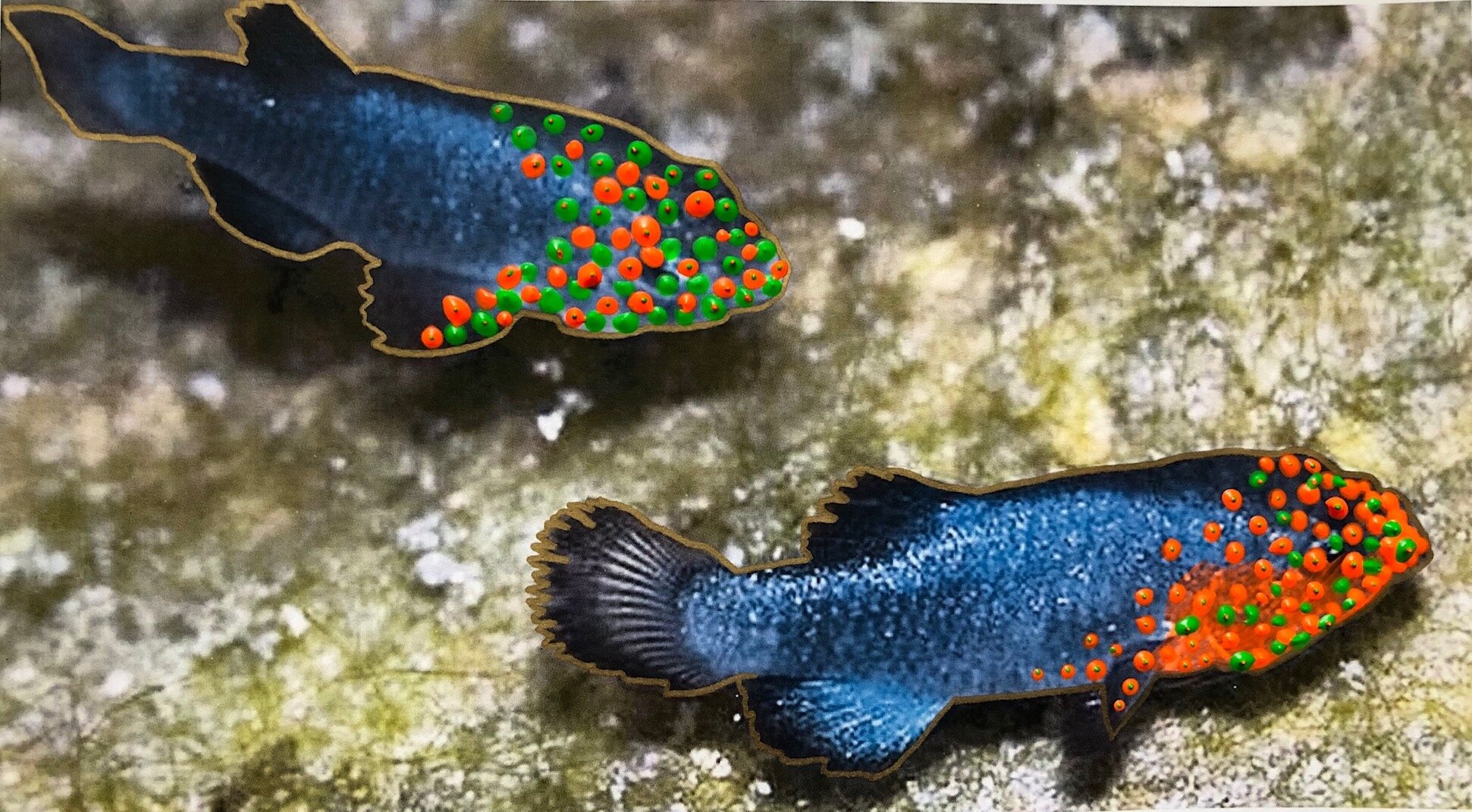Sheep Pig Goat by Fevered Sleep (2017) image courtesy of Wellcome CollectionPerformance Philosophy & Animals: Towards a Radical Equality is a research project originally funded by the AHRC’s Leadership Fellows scheme, led by Prof. Dr. Laura Cull Ó Maoilearca at the University of Surrey, UK and DAS Graduate School, Amsterdam University of the Arts.
Originally running as a Fellowship from 2019-2021, then extended into a longer term initiative, the aim of this project is to transform our understanding of the relationships between performance, philosophy and animals.
Recent years have seen an exciting surge of interest in the potential for mutually beneficial interactions between performance and philosophy - from innovative collaborations between prominent philosophers and performance-makers, to the rapid growth of a new field of international research and creative practice called "Performance Philosophy". This project suggests that the radical potential of this emerging field lies in its capacity to challenge the hierarchies between the arts and other forms of thought and to act as a pioneer in achieving greater equality in how we produce knowledge, with a particular focus on what performance-based research might contribute to our understanding of nonhuman animals.
Scarecrow by Every house has a door in collaboration with Essi Kausalainen
Photo: Vojtech Brtnický / Alfred ve dvore theatre, PragueThis project will support Performance Philosophy to realise its potential by bringing together insights from cutting-edge performance practice and the work of French thinker, François Laruelle - now widely acknowledged as one of the most significant European philosophers working today. He proposes a radical equality between all forms of thought - even to the extent of no longer seeing the 'love of wisdom' (philo-sophia) as exclusive to the human or Homo sapiens (the 'wise man'). Consequently, whilst mainstream debate around equality often focuses on the idea of a universal humanity, this project turns its attention to the thought of nonhuman animals in order to perform a radical extension of the idea of equality itself: animals being those 'others' most like 'us' who are nonetheless not 'us'.
The project aims to advance our thinking about how performance, philosophy and animals interact by investigating how performance might transform philosophy and how our concepts of performance and equality might be transformed by the animal, using a unique 'performance philosophy' methodology combining in-depth philosophical scholarship with 2 core case study collaborations with the critically acclaimed performance companies: the Arts Council England National Portfolio Organisation, Fevered Sleep and the influential US-based company, Every house has a door, both of whom are developing projects on animals and performance.
D Devils Hole Pupfish. Image by Laura Cull Ó MaoilearcaHosted by the University of Surrey Vet School, the Fellow will collaborate with Fevered Sleep to produce a new version of "Sheep Pig Goat": a project that raises questions about the differences between how humans see animals and how they 'really' are by inviting audiences to witness a series of improvised encounters between human performers and sheep, pigs and goats. With Every house has a door, she is collaborating as a performance philosopher on "Carnival of the Animals" - a new piece using performance to investigate the idea of interspecies communication.
The project also includes a two-day symposium held at the Institute for Contemporary Arts (ICA) in London in April 2020, collaboratively curated by the Fellow with Rajni Shah and Astrid Korporaal. Whilst the Fellowship is particularly focussed on equality in terms of the relationship between performance, philosophy and non-human animals, this symposium aims to address the notion of ‘radical equality’ in a wider sense – exploring the deep entanglement of contemporary oppressions including racism, sexism and speciesism, and creating an interstitial space to cultivate thinking together: to share in a diverse range of experimental practices asking whether it is possible to ‘undo’ systemic inequality and how we might present more ethical alternatives to the paradigm of mastery in research through the invention of new modes of thought and relationality.



